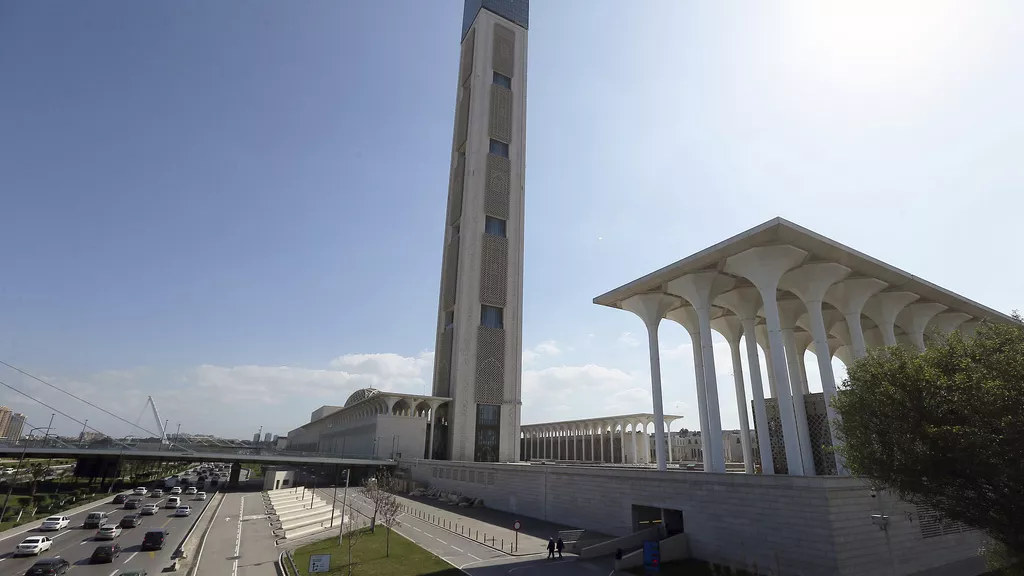Algeria inaugurates Africa’s largest mosque after years of political
Algeria celebrated the inauguration of the Great Mosque of Algiers on its Mediterranean coast, though political turmoil and financial challenges marked the journey from conception to completion. Initially envisioned as a symbol of state-sponsored strength and religiosity, the project faced delays and cost overruns, transforming its narrative over the years.
Constructed by a Chinese firm throughout the 2010s, the mosque boasts the world’s tallest minaret at 869 feet (265 meters). As the third-largest mosque globally and the largest outside Islam’s holiest cities, it accommodates 120,000 people in its prayer room. The modernist design incorporates Arab and North African elements, a nod to Algerian tradition and culture. Noteworthy features include a helicopter landing pad and a library capable of housing up to one million books.
The inauguration was described by Ali Mohamed Salabi, the General Secretary of the World Union of Muslim Ulemas, as guiding Muslims “toward goodness and moderation.” Promoting a moderate brand of Islam has been a priority in Algeria, particularly following the suppression of an Islamist-led rebellion in the 1990s during a tumultuous civil war.
Algerian President Abdelmajid Tebboune fulfilled the promise of a grand inauguration, emphasizing the mosque’s symbolic significance. Despite the ceremonial nature of the event, the mosque had been open to international tourists and state visitors for approximately five years. The timing strategically coincided with the upcoming Muslim holy month of Ramadan, officially allowing the mosque to open for public use during nightly prayers.
Beyond its monumental stature, the mosque faced controversies and delays during its seven-year construction period. Critics questioned the chosen site’s seismic risk, a concern disputed by the state in a news release. The project’s tumultuous history fueled public dissatisfaction, with some expressing a preference for investments in healthcare infrastructure.
Former President Abdelaziz Bouteflika initiated the mosque project with aspirations for it to be the largest in Africa, bearing his name. However, protests in 2019 led to Bouteflika’s resignation and halted his plans. The mosque, part of a larger development scheme, faced corruption allegations during Bouteflika’s era, reflecting suspicions of kickbacks to contractors and state officials.
With an official cost of $898 million, the Great Mosque of Algiers stands not only as a monumental architectural achievement but also as a symbol of Algeria’s complex political and financial landscape.



















